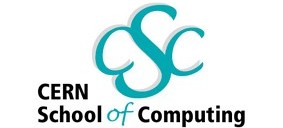|
|
 |
|
|
|
|
|
Lecturer Biographies
|
|
|
Mark Dönszelmann |
SLAC |
|
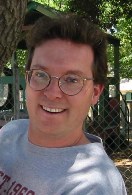 |
Mark Dönszelmann studied Electronics Engineering in Delft in the
Netherlands. He joined NIKHEF in 1989 and then CERN, as a fellow, to work on
the online software of the DELPHI experiment. At CERN he continued as a
staff member to work on the World-Wide Web, followed by work in the Physics
Applications group.
He is the author of WIRED, the WWW Interactive Remote Event Display, an
event display framework written in Java. In 2002 he moved to SLAC to
continue working on WIRED, JAS (Java Analysis Studio), AIDA (Abstract
Interfaces for Data Analysis) and FreeHEP, a library of java (and c++)
components for use in High Energy Physics. Mark visited the CERN School of
Computing in Ystad, Sweden in 1991 as a student, and taught several times in
subsequent Computing Schools in subjects ranging from information technology
to distributed computing and mobile agents.
|
|
|
|
|
François
Flückiger |
CERN |
|
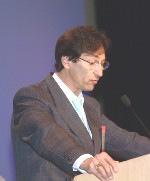 |
François
Flückiger, Director of the CERN School of Computing, is Technology Transfer
Officer for Information Technologies at CERN and Manager of the CERN
openlab for DataGrid applications. Before joining CERN in 1978,
he was employed for five years by SESA in Paris. At CERN, he has been in charge
of external networking for more than 12 years and held positions in
infrastructure and application networking, including the management of
CERN's World-Wide Web team after the departure of the Web inventor Tim
Berners-Lee. He is an adviser to the European
Commission, a member of the Internet Society Advisory Council and the author
of the reference textbook "Understanding Networked Multimedia" as well as
more than 80 articles. He has 32 years of experience in networking and
information technologies. François Flückiger graduated from the Ecole
Supérieure d'Electricité in 1973 and holds an MBA from the Enterprise
Administration Institute in Paris in 1977. |
|
| |
|
Rudi Frühwirth |
HEPHY |
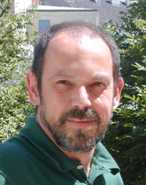 |
Rudi Frühwirth studied mathematics in Vienna. In 1977
he joined the Institute of High Energy Physics in Vienna, where has been
working ever since. He has developed online software, simulation software,
pattern recognition software, and track and vertex reconstruction software
for various experiments. He has taught mathematics and statistics at the
University of Economics and regularly gives courses on data analysis at the
University of Technology in Vienna. |
|
| |
|
Bob
Jacobsen |
University of California at Berkeley
Bob_Jacobsen@lbl.gov |
|
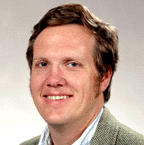 |
Bob
Jacobsen is an experimental high-energy physicist and a faculty member at the University of California, Berkeley.
He's a member of the BaBar collaboration, where he lead the effort to create the
reconstruction software and the offline system.
He has previously been a member of the ALEPH (LEP) and MarkII (SLC)
collaborations. His original academic training was in computer engineering,
and he worked in the computing industry before becoming a physicist |
|
| |
|
Tony
Johnson |
SLAC |
|
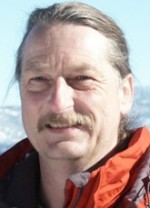 |
Tony Johnson obtained his PhD from Oxford
University while working on the EMC experiment at CERN. Since then he has
worked for MIT, Boston University and is currently a staff physicist at SLAC.
He spent many years as software architect for the SLD experiment, and has
worked on many data analysis, internet and distributed computing projects.
He is currently data handling coordinator for the GLAST experiment, working
on software for physics studies at future linear colliders, and is chief
architect of the JAS analysis toolkit.
|
|
| |
|
Erwin
Laure |
CERN |
|
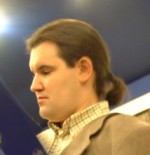 |
Erwin Laure received his Ph.D degree in Business Administration and Computer
Science in 2001 from the University of Vienna. After working as a research
assistant at the Institute for Software Science of the University of Vienna
he joined CERN in 2002 as a member of the EU DataGrid project working on
data management issues. Since November 2002 he is the Deputy Technical
Coordinator of the EU DataGrid project.
|
|
| |
|
Martin Liendl |
SWX Swiss Exchange |
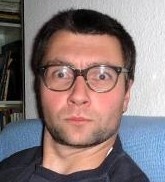 |
Martin Liendl worked as a
CERN Fellow for the Compact Muon Collaboration in the experiment's Core
Computing group. There he was responsible for the Detector Description
Database and its integration to the CMS simulation package. Futhermore he
co-ordinated work related to the realization of a Conditions Database for
CMS and implements related prototypes. Martin received his Master in Physics
worked afterwards for several years in software industry before
joining the CERN Doctoral Student program. He then got his Ph.D. in Computer
Science from the Vienna University of Technology. At the end of his
Fellowship,
Martin again returned to industry. |
|
| |
|
Alberto Pace |
CERN |
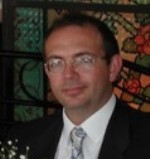 |
Alberto Pace is a member if the IT department
at CERN where he leads the Internet Services group providing Electronic
Mail, Central Web and Windows Desktops services for CERN. He has more than
15 years experience in computing services, infrastructure, software
engineering, accelerator control and accelerator operation. He graduated in
Electronic Engineering from Politecnico di Milano (Italy) in 1987.
|
|
| |
|
Andreas Pfeiffer |
CERN |
|
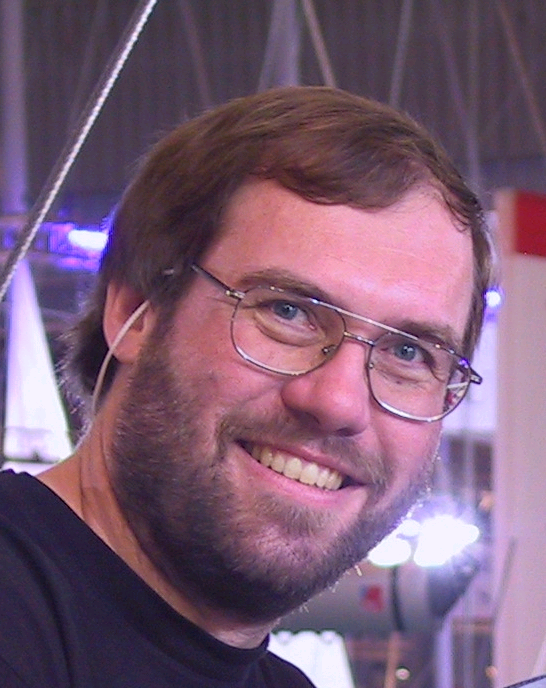 |
Andreas
Pfeiffer has studied Physics in Giessen and Heidelberg, where he got his
Ph.D. in 1988. Since then he was working until 1998 with the University of
Heidelberg on the CERES/NA45 experiment at CERN, studying the creation of
e+e- pairs in ultra relativistic heavy ion collisions at the SPS. His main
responsibilities were computing, both on-line/DAQ and offline/simulation. In
January 1999 he joined CERN to lead the Anaphe (former LHC++) project in IT
division. With the startup of the LHC Computing Grid (LCG) project, Andreas
is now working in the PI project of LCG and on analysis related issues in
the CMS experiment. |
|
| |
|
Heinz Stockinger |
University of Vienna |
|
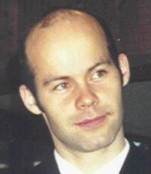 |
Heinz Stockinger has been working in Grid projects in Europe
(European Organization for Nuclear Research, CERN) and in the U.S. (Stanford
Linear Accelerator Center, SLAC) for many years. Within the European
DataGrid project (EDG) he was the Education and Outreach Manager as well as
responsible for replication software in the Data Management workpackage.
He is currently assistant professor in the University of Vienna (Faculty of
Computer Science). He is the leader of the Research Lab for Computational
Technologies and Applications within the faculty of Computer Science. The
lab has a strong focus on Data Grids and co-operation with industry
partners. Heinz holds a Ph.D. degree in Computer Science and Business
Administration from the University of Vienna, Austria.
|
|
Last edited:
03-Mar-05
|
|
